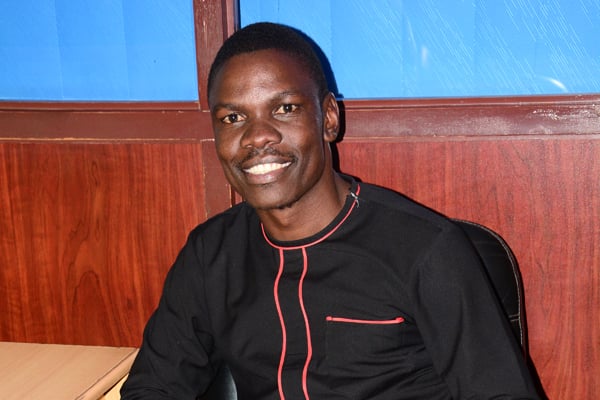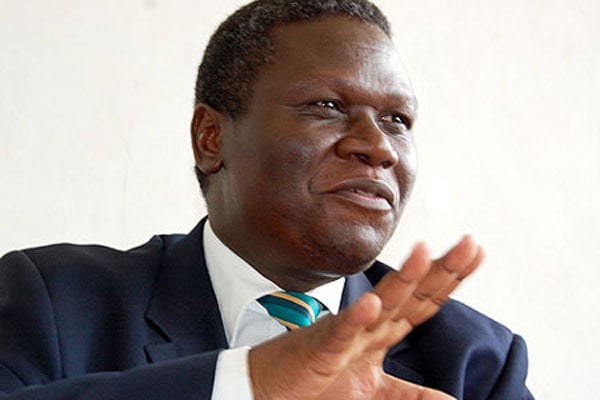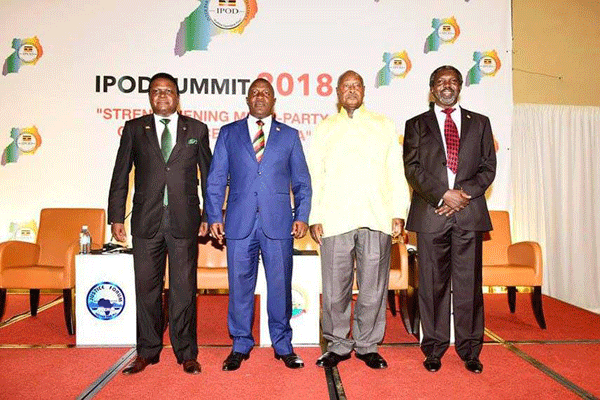Prime
NUP chiefs, MP Bwanika differ on talks with Museveni

David Lewis Rubongoya, NUP secretary general and Abed Bwanika, Kimaanya-Kabonero MP. PHOTO/COMBO
What you need to know:
- Kimaanya-Kabonero MP Abed Bwanika says NUP should dialogue with government in a bid to have party supporters released from custody.
A fault line in the National Unity Platform (NUP) has emerged, with the top brass of the leading Opposition party taking exception to a suggestion of one of its legislators.
Kimaanya-Kabonero MP Abed Bwanika has suggested that NUP changes tack in a bid to have its supporters released from custody.
“Our supporters continue to be arrested and detained up to now and we cannot keep watching on,” Mr Bwanika said via telephone yesterday.
He added: “I have lined up a number of suggestions to my party because we need to engage the Judiciary and Executive.”
Mr Bwanika, who is a three-time presidential candidate, admitted that previous approaches, including marching out of parliamentary sessions, have not yielded fruit as NUP supporters continue to be held in various detention centres.
“I have no fear to meet President Museveni and if there is a team that is made, I want to be one of them,” he said, adding: “We have done everything in our power and it is time to engage another gear of meeting these people. Our people are suffering and we can’t just sit.”
Key issue
A number of NUP supporters were arrested and detained in the run up to as well as after the 2021 General Election. Those who have been released—such as Mr Samuel Masereka from Kasese—give tales of torture and have scars to prove their claims. NUP’s top brass says it has more than 100 of its supporters languishing in different detention centres.
Mr Bwanika said yesterday he believes that dialogue can help in delivering freedom for the people who are still incarcerated.
“Even great nations such as the US discuss with their enemies such as Russia, and we recently saw Uganda discussing with Rwanda to solve an impasse that had been in existence for three years. We can also get a solution to our long-lasting problem,” he said.
No to dialogue
NUP’s top brass, however, says it has no intentions of dialoguing with someone who reportedly stands accused of breaking the law with impunity.
“These people who were arrested have the right to belong to any party that they believe in and support a leader of their choice. We are not ready to plead with a law breaker,” NUP secretary general David Lewis Rubongoya said yesterday.
He added: “This is the very reason we have refused to join Ipod. Going to Museveni for discussion would mean that we have endorsed him as president and yet he lost the election and usurped the will of the people. We shall sit with Dr Bwanika and try to understand what he is talking about before we make any final decisions.”
Mr Chris Baryomunsi, the government spokesperson, said yesterday that they are ready to dialogue if NUP has a list of incarcerated members and where they are being held.
“I don’t know whether NUP has facts of the detained members or do they want to say that every criminal arrested belongs to NUP. Criminals are arrested according to the crimes they have committed, not according to the party they belong to. But if they want to discuss with us, we are ready,” Mr Baryomunsi said in a telephone interview.
Last week, NUP presented before the press more than 20 families whose relatives have never resurfaced since their arrest a year ago.
“It is not true that there are NUP supporters being held without trial…if the leaders engage government, a solution would be found. Let them make this formal through writing that they need a discussion,” Mr Baryomunsi said yesterday.
Background
Last April, the government released a list of 1,300 suspects in relation to the November 2020 protests and 2021 General Elections violence.
The list tabled before parliament indicated that the government had arrested 269 over the November riots and 1,035 in relation to elections. A month prior, NUP had claimed that 680 of its supporters were missing.
The government, however, admitted to having only 71 of them in custody.





